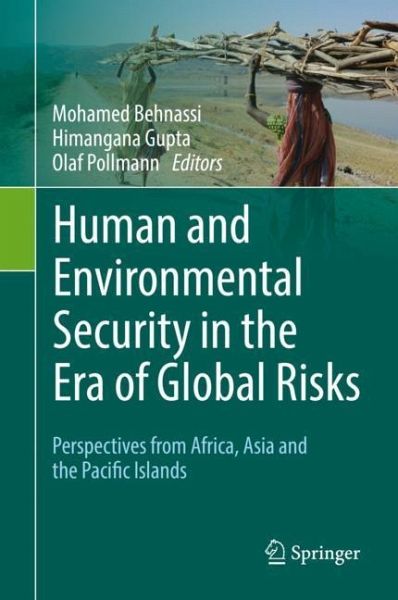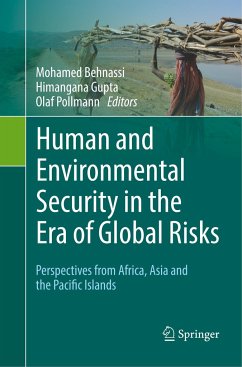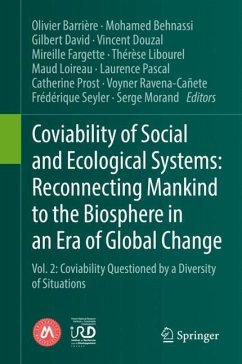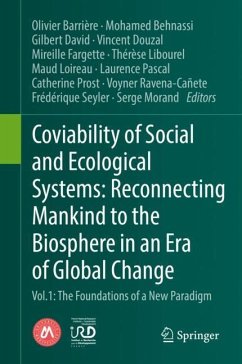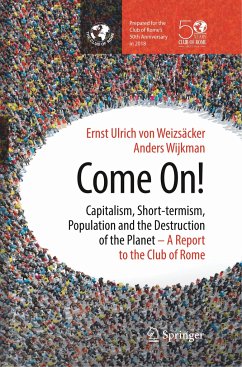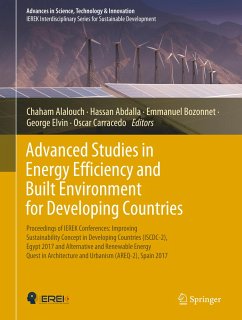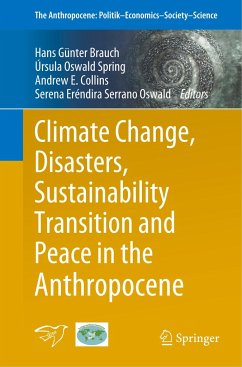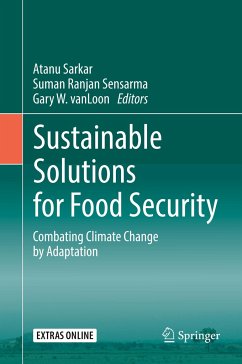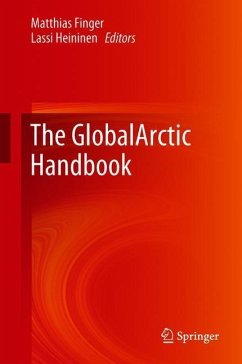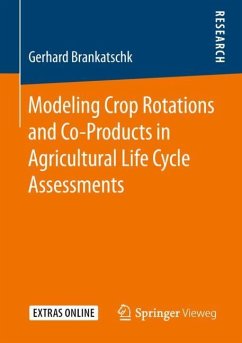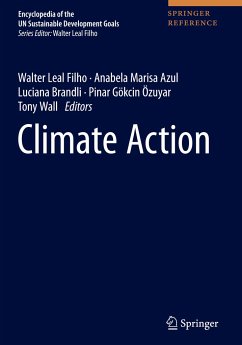Mohamed Behnassi is specialist in Environment and Human Security Law and Politics. After the obtention of his Ph.D in 2003 from the Faculty of Law, Economics and Social Sciences, Hassan II University of Casablanca for a Thesis titled: Multilateral Environmental Negotiations: Towards a Global Governance for Environment, he accessed to the Faculty of Law, Economics and Social Sciences, Ibn Zohr University of Agadir, Morocco as Assistant Professor (2014). In 2011, he obtained the status of Associate Professor and in 2017 the status of full professor. He served as the Head of Public Law Department (2014-2015) and the Director of the Research Laboratory for Territorial Governance, Human Security and Sustainability (LAGOS) (2015-at present). In addition, Dr. Behnassi is the Founder and Director of the Center for Environment, Human Security and Governance (CERES) (former North-South Center for Social Sciences (NRCS), 2008-2015). Dr. Behnassi is also Associate Researcher at the UMR ESPACE-DEV, Research Institute for Development (IRD), France. In 2011, he completed a U.S. State Department-sponsored Civic Education and Leadership Fellowship (CELF) at the Maxwell School of Citizenship and Public Affairs, Syracuse University, USA and in 2014 he obtained a Diploma in Diplomacy and International Environmental Law from the University of Eastern Finland and the United Nations Environment Programme (UNEP), Finland. Dr. Behnassi has pursued several post-doctoral trainings since the completion of his PhD. His core teaching and expertise areas cover: environmental change, human security, sustainability, climate change politics and governance, human rights, CSR, etc. He has published numerous books with international publishers such as: Environmental Change and Human Security in Africa and the Middle East (Springer 2017); Vulnerability of Agriculture, Water and Fisheries to Climate Change (Springer 2014); Science, Policy and Politics of Modern Agricultural System (Springer 2014); Sustainable Food Security in the Era of Local and Global Environmental Change (Springer 2013), Global Food Insecurity (Springer, 2011); Sustainable Agricultural Development (Springer, 2011); Health, Environment and Development (European University Editions, 2011), and Climate Change, Energy Crisis and Food Security (Ottawa University Press, 2011). He has also published numerous research papers and made presentations on these at international conferences. In addition, Dr. Behnassi has organized many international conferences covering the above research areas in collaboration with national and international organizations and managed many research and expertise projects on behalf of various national and international institutions. Behnassi is regularly requested to contribute to review and evaluation processes and to provide scientific expertise nationally and internationally. Other professional activities include Social Compliance Auditing and consultancy by monitoring human rights at work and the sustainability of the global supply chain. Himangana Gupta is an expert in climate change and biodiversity policy and diplomacy. She is part of the National Communication Cell of the Indian Ministry of Environment, Forest and Climate Change. Her current position, as a Programme Officer, involves coordination with scientists, climate experts and ministries to compile India's National Communications to the UNFCCC. She is doctorate in environment science with specialization in climate change and biodiversity policy and was a University Gold medallist in Masters. She was an expert reviewer of IPCC AR5 WGII report. She has written research papers in reputed international and national journals on current state of climate negotiations, forestry, industrial efficiency, rural livelihoods and women in climate change mitigation and adaptation. She has presented her research at various national and international forums, particularly on climate policies and adaptive capacity of local people, energy efficiency, biodiversity conservation and women empowerment. Olaf Pollmann is deputy head of the section "African Service Centers" in West (WASCAL) and Southern Africa (SASSCAL) on behalf of the Federal Ministry of Education and Research (BMBF). He is responsible for the coordination of the entire process-management of all Africa-related activities. Especially the coordination, arrangements and result dissemination of the consultation results for the final preparation and implementation of the perpetuation of the African Centers by the African partners are essential duties. But also coordinated diplomatic negotiations with WASCAL- and SASSCAL-stakeholders and further actors of the African network are covered by the work of Dr. Pollmann. Beside theseresponsibilities Dr. Pollmann is also CEO of the company SCENSO - Scientific Environmental Solutions in Germany. From 2007 till 2010 Dr. Pollmann worked as a post-doctoral research fellow in the field of sustainable resource management, waste reduction and water purification at the Department for Environmental Sciences and Development at the North-West University (NWU), Potchefstroom Campus in South Africa. Before that research stay abroad Dr. Pollmann studied civil engineering majoring in water-supply, particularly environmental engineering and technical waste-management as well as additional environmental management techniques at the Gottfried Wilhelm Leibniz University of Hannover in Germany. Subsequent to that position he worked as a research scientist at the Leuphana University of Lueneburg, Germany. 2006 he finished his Doctorate (Dr.-Ing. / PhD) in the field of environmental-informatics at the Institute of Waste Management in collaboration with the Institute of Numerical Methods and Informatics in Civil Engineering at the Technical University of Darmstadt, Germany. In 2011 he finished an additional Dissertation in the field of sustainable resource management with the title Reduction of Anthropogenic Environmental Influences by Advanced and Optimized Technologies at the North-West University (NWU), South Africa and achieved another PhD in Environmental Sciences. From 2012 till 2015 he was employed at the NWU as a guest scientist and extraordinary senior lecturer in the field of Environmental Sciences. Dr. Pollmann has also published numerous papers in national and international journals and gave several oral presentations at international conferences. He is continuously requested to be partner in various review and evaluation processes, e.g. international journals and conferences (Scientific Advisor) as well as EU- and African calls (Scientific Expert).
